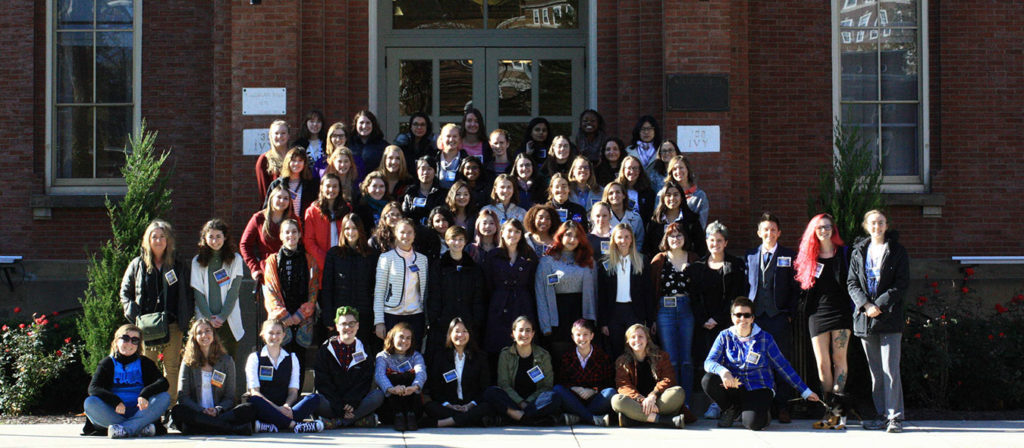The inaugural Conference for Undergraduate Women in Astronomy (CUWiA) was held at West Virginia University (WVU) November 1-3. Fifty-eight undergraduate female students attended, representing 21 colleges and universities in 10 states.
CUWiA was formed to celebrate women in astronomy, from West Virginia and beyond. The idea for CUWiA came from WVU undergraduates Olivia Young and Erica Chwalik after attending the 2018 American Physical Society (APS) Conference for Undergraduate Women in Physics (CUWiP). Their experience was such a positive one that it set the idea in motion to start CUWiA and bring women in astronomy together to learn about research and explore career and graduate opportunities.
Dr. Maura McLaughlin, professor and researcher in the Department of Physics and Astronomy at WVU, was one of several speakers at the conference. McLaughlin is co-founder of the Pulsar Search Collaboratory, a nation-wide program that gets middle and high school students involved in pulsar astronomy. She is also co-director of the NANOGrav Physics Frontiers Center, a scientific collaboration working to use pulsars to detect gravitational waves. McLaughlin was recently named one of Nature’s Top Ten People to Watch in 2019.
Claudia Flores-Saviaga, Ph.D. student in WVU’s Human Computer Interaction Lab in the Department of Computer Science and Electrical Engineering, is a Fellow at Facebook Research and at the Oxford Internet Institute. Her research involves the areas of AI, crowdsourcing and social computing.
Dr. Kathryn Williamson, a professor and researcher in WVU’s Department of Physics and Astronomy whose work focuses on astronomy outreach and education, gave a talk entitled “Why You Should Outreach.”
The keynote address was by the groundbreaking scientist Dr. Jocelyn Bell Burnell on her discovery of pulsars, or highly magnetized rotating neutron stars that emit beams of electromagnetic radiation while a graduate student at the University of Cambridge. In recognition of the importance of her work, she received a Special Breakthrough Prize in Fundamental Physics in 2018. Bell Burnell used the entirety of the $3 million prize to establish a scholarship for underrepresented students in physics research.
The CUWiA break out sessions were on Diversity in STEM, Mental Health, K-12 Mentoring in the Pulsar Search Collaboratory, and a CV, Resume, and Overleaf Workshop.
Conference activities included a planetarium show, career panel, optical telescope observing, poster session, physics demos, and WVU Physics and Astronomy laboratory tours.
Originally from Gravitational Waves and Cosmology at West Virginia University.
